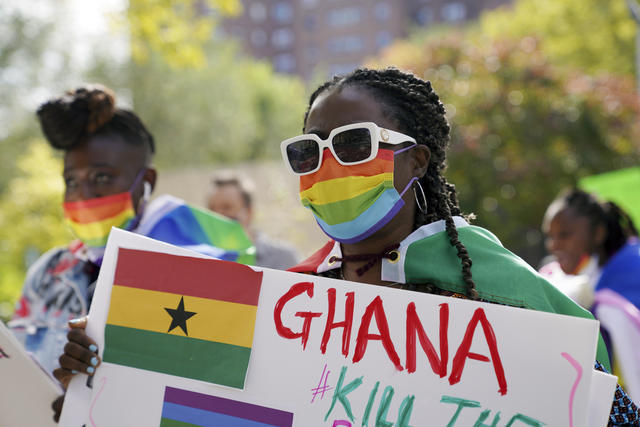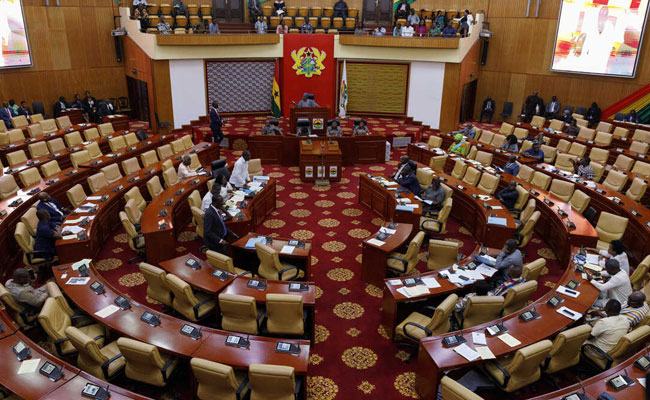Ghana Parliament Passes Anti-LGBTQ Bill: Upholding Traditional Values
In a recent development, the Ghanaian Parliament has passed a controversial anti-LGBTQ bill, sparking widespread discussions and debates. This legislative move has far-reaching implications for various government exam aspirants, especially those preparing for positions in teaching, policing, banking, railways, defense, and civil service roles like PSCS to IAS.
The bill, officially known as [Provide Bill Name], aims to address concerns related to the LGBTQ community in Ghana. This development has ignited a nationwide discourse on the balance between traditional values, human rights, and legal frameworks.
Under the new law, engaging in LGBTQ activities can result in severe penalties, including imprisonment. This legal standpoint is crucial for aspirants to understand, especially in roles where a comprehensive knowledge of local laws is imperative.
The passing of this bill reflects the prevailing societal attitudes towards LGBTQ issues in Ghana. As government employees, it is essential for aspirants to be aware of the societal context to navigate public sentiments effectively.
The international community has closely monitored Ghana’s stance on LGBTQ rights. This development may have implications on Ghana’s diplomatic relations, which is a pertinent topic for exams covering international affairs.
Understanding the potential consequences and the evolving nature of this issue is crucial for aspirants. It opens up avenues for discussing human rights, cultural sensitivity, and the role of governments in shaping societal norms.

Why this News is Important
Impact on Societal Values:
The passing of the anti-LGBTQ bill signifies a strong adherence to traditional values in Ghanaian society. Aspirants must grasp the societal impact to appreciate the complexities of governance in a culturally diverse environment.
Legal Ramifications:
Understanding the legal ramifications of this bill is essential for exam preparation, especially for roles within the legal and law enforcement sectors. It highlights the intersection of law, ethics, and human rights.
International Relations Dynamics:
The international community’s response to Ghana’s stance on LGBTQ rights underscores the interconnectedness of global affairs. This knowledge is vital for aspirants pursuing positions with international dimensions.
Historical Context
Background of LGBTQ Issues in Ghana:
Ghana has a history of conservative views on LGBTQ matters, rooted in cultural and religious beliefs. The anti-LGBTQ bill is a culmination of longstanding debates on the recognition and acceptance of LGBTQ rights within the country.
Global Perspectives on LGBTQ Rights:
The global discourse on LGBTQ rights has influenced Ghana’s approach. Historical events, such as international conventions and agreements, have shaped the narrative around LGBTQ issues in the country.
5 Key Takeaways from Ghana’s Anti-LGBTQ Bill
| Serial Number | Key Takeaway |
|---|---|
| 1 | Stringent legal consequences for LGBTQ activities. |
| 2 | Reflection of societal values and cultural norms in Ghana. |
| 3 | Potential impact on international relations and diplomatic dynamics. |
| 4 | Historical context of conservative views on LGBTQ issues in Ghana. |
| 5 | Broader implications on human rights discussions and governance. |
Important FAQs for Students from this News
Q1: What is the main purpose of the anti-LGBTQ bill passed by the Ghanaian Parliament?
A: The main purpose is to address concerns related to LGBTQ activities in Ghana and impose legal consequences for engagement in such activities.
Q2: How might the passing of this bill impact international relations for Ghana?
A: The passing of this bill may have implications on Ghana’s diplomatic relations, especially concerning LGBTQ rights.
Q3: Why is understanding the societal impact of the bill crucial for government exam aspirants?
A: Aspirants need to grasp the societal impact to navigate public sentiments effectively in their roles as government employees.
Q4: What historical context contributes to Ghana’s conservative views on LGBTQ issues?
A: Ghana has a history rooted in cultural and religious beliefs, influencing its conservative stance on LGBTQ matters.
Q5: How does the passing of the bill reflect the balance between traditional values and human rights in Ghana?
A: The bill reflects a societal commitment to traditional values, raising questions about the equilibrium between tradition and human rights.
Some Important Current Affairs Links

















